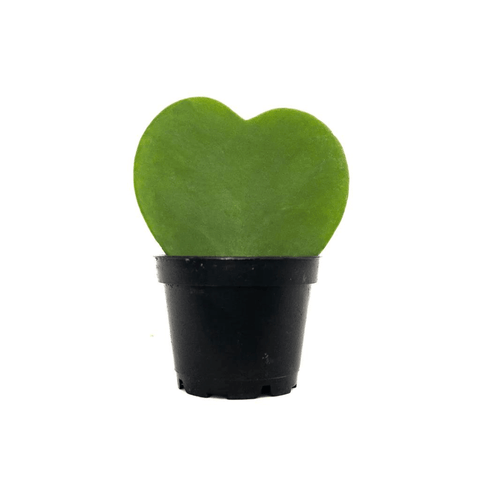Are you seeking ways to make your office space more enjoyable, productive, and calm? Consider incorporating houseplants into your office. Studies have shown that having plants in an office setting can help reduce stress, improve air quality, and boost creativity. Not only are plants aesthetically pleasing, but they also have the potential to improve workplace productivity.
In this article, we’ll cover the benefits of adding houseplants to your office space, the best office plant types, and tips for successfully incorporating houseplants into your office. We’ll help you create an aesthetically pleasing office space filled with plants that can help reduce stress, improve air quality, and boost productivity.
Benefits of Houseplants in the Office
Houseplants are a popular addition to many office spaces. They have numerous benefits to our environment and well-being, making them an invaluable addition to any workplace.
Houseplants can increase the air quality in the office. Plants act as natural air purifiers, filtering toxins, carbon dioxide, and other pollutants from the air. This is especially important in office spaces that are enclosed and recycled air. Additionally, many houseplants give off oxygen, adding fresh air to the room.
In addition to improving air quality, houseplants have many psychological benefits. Studies have shown that houseplants can reduce stress in the workplace and at home addition, hanging plants around has been linked to better focus and productivity, improving job performance. The presence of plants in the office can also create a more energetic and pleasant environment, leading to higher job satisfaction and employee morale.
Houseplants can bring life to your office. Not only do they create an inviting space, but they also bring color and texture to an otherwise dull office. This can add visual interest to office space, making it more pleasant to work in.
In addition to the visual appeal, houseplants also require time and effort to care for. This can be a great way to engage employees and feel pride in their office space. Plant care is relatively simple and doesn't require much time or money. This makes it easy for any office to take advantage of the many benefits of houseplants.
Increase Productivity
Houseplants have been shown to affect productivity and work performance positively. Studies have demonstrated that having plants in the office can lead to improved concentration and higher levels of job satisfaction. Furthermore, taking care of plants is a great way to reduce stress and take a break from the daily grind of office life. By tending to the plant and taking responsibility for its care, workers can experience a sense of accomplishment and purpose. The presence of houseplants has been linked to an increase in air quality, reducing air pollution in the office and leading to a healthier work environment. So if you’re looking to boost productivity and morale in your office, it may be worth investing in some houseplants.
Improve Air Quality
Houseplants are known to naturally filter and purify the air. Through their process of photosynthesis, they convert carbon dioxide into oxygen. Research has shown that adding plants to an office can reduce CO2 levels, as well as other volatile organic compounds (VOCs) that are present in indoor air. Additionally, plants help to humidify dry office air, by releasing moisture into the air. Thus, houseplants can help to create a healthier office space by improving the air quality.
For those who are interested in adding plants to their office, there are plenty of choices to consider. Low maintenance plant varieties like succulents, ferns, and bromeliads require little care and are well-suited to indoor spaces with limited natural light. While more effort may be required for caring for more demanding species like orchids and ficus, these plants can provide a great source of natural beauty and a connection with nature. With a little bit of plant care and maintenance, houseplants can help to create a pleasant and healthier office environment.
Boost Creativity
Adding houseplants to your office space can help to foster creativity and productivity by creating a calming and inviting atmosphere. Studies have shown that having a few houseplants in the office can lead to higher creativity and the ability to think more freely. Furthermore, taking care of the plants can be a calming and enjoyable activity that can help break up long office days. Plant care can be a task that employees can work on together and help create a sense of camaraderie and connection. Incorporating houseplants into your office space is a great way to boost workplace morale and bolster employee creativity.
Reduce Stress
One of the greatest benefits of adding houseplants to any office space is the positive effect they have on stress reduction. Studies have found that being around plants can act as a natural stress reliever and can even help to improve mental health. When office workers care for their plants, the process of caring for the plant can have a calming effect, as well as can give them a break from the stresses of office tasks. Plant care itself can be a calming form of mindfulness, as it encourages you to focus on the present moment, which can be especially helpful for alleviating stress.
Best Office Plant Types
When selecting the right houseplants for your office space, it’s essential to consider both the size and the level of care required to maintain the plants. Some of the best houseplants for the office are low maintenance and don’t require too much space. Here are a few suggestions.
Peace lily: One of the most popular houseplants, this plant has broad and dark green foliage with white flowers that shape small stars. It’s great for offices as it only needs to be watered once every two weeks and cleans the air in your office space.
Snake plant: This popular houseplant is well known for its attractive shape and patterned leaves. It’s also low maintenance, needing only weekly watering and occasional cleaning. And it produces oxygen at night, making it helpful for improving the air quality of an office space.
Pothos: Also known as the devil’s ivy, this is one of the easiest houseplants to care for. It looks beautiful and needs minimal care, with only weekly watering and weekly pruning to keep it looking great.
Philodendron: An evergreen climbing vine, the philodendron is an excellent choice for an office space. These plants need regular watering and the occasional pruning, but they’re low maintenance and can quickly spruce up any workspace.
These are just a few of the great houseplants that are perfect for office spaces. Many other plants are available, so don’t be afraid to experiment and find the one that works best for your office. If you keep the size and care requirements of the plant in mind, you’ll be sure to find one that’s perfect for your workspace.
Peace Lily
Peace Lily, also known as Spathiphyllum, is an ideal houseplant for office spaces because it requires minimal care and thrives in low-light environments. This plant is known for its long, glossy leaves and white blooms that sit atop long stems. Though easy to care for, keep in mind that the Peace Lily does not like to be over-watered or be exposed to too much direct sunlight. With simple plant care, the Peace Lily can make an ideal addition to any office space to help increase productivity.
Pothos
is an excellent houseplant for bringing greenery into an office environment. This houseplant is easy to care for, making it a great choice for those with busy schedules. The trailing leaves of pothos create an attractive addition to any office and require minimal maintenance. To care for pothos, make sure the soil remains moist and is occasionally fertilized with an all-purpose houseplant fertilizer. Additionally, it's important to clean the leaves with a damp cloth to keep them looking lush and vibrant. With its low-maintenance requirements and beautiful foliage, Pothos is a great houseplant to include in any office space.
Rubber Plant
When considering adding houseplants to your office space, the rubber plant is a great choice. Not only do they add a touch of greenery to your space, but their dark, glossy leaves provide an extra level of sophistication. Plus, their easy-to-care-for requirements make them ideal for reducing stress on the office environment. Rubber plants need minimal watering and do well in indirect light, making them a great option for any busy office. And since most don't grow to more than a few feet, they're perfect for smaller work areas. Just be sure to dust their leaves often and follow some basic plant care tips to keep your rubber plant looking its best.
Snake Plant
The Snake Plant, also commonly known as Mother-in-Law's Tongue, is a great houseplant choice to consider adding to your office space. This tropical plant is resilient, easy to care for, and aesthetically pleasing. It thrives in most home and office environments, and doesn't require much attention when it comes to watering or plant care. Snake plants offer many benefits, including air purification, improved mood and productivity, and natural beauty. Adding this low maintenance houseplant to your office will bring nature indoors, while providing you and your team with many cognitive benefits.
In conclusion, houseplants provide numerous benefits to the office environment regarding air quality and psychological well-being. In addition, they are an easy and inexpensive way to add life to an office and an excellent way for employees to engage and feel a sense of ownership. For these reasons, houseplants make a valuable addition to any office space.





Comments (0)
There are no comments for this article. Be the first one to leave a message!